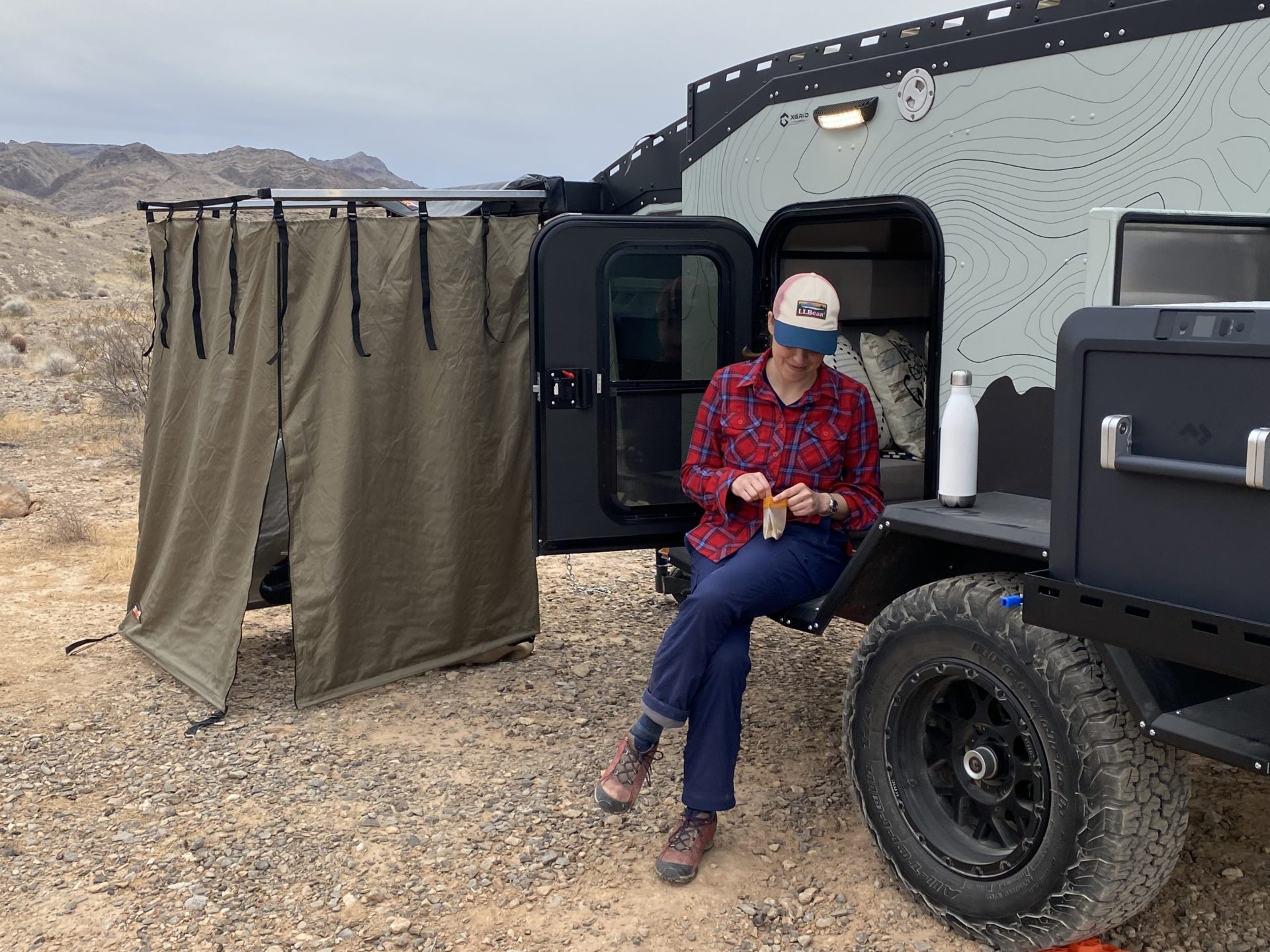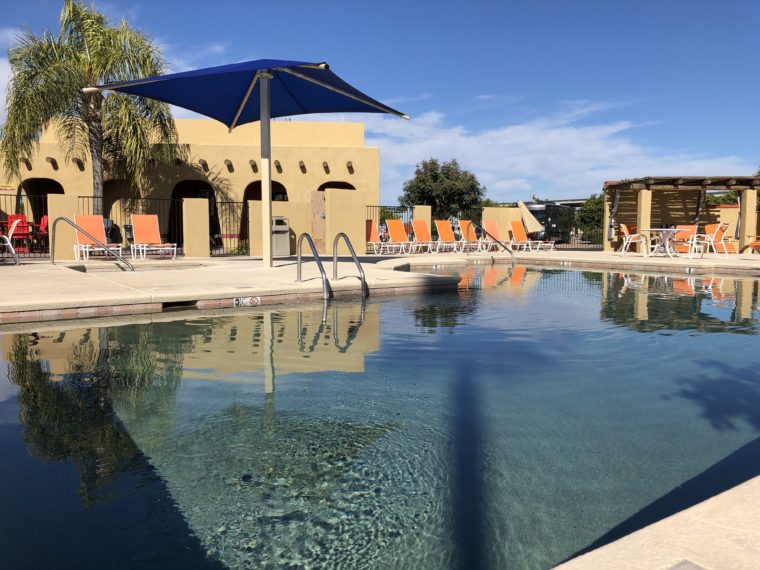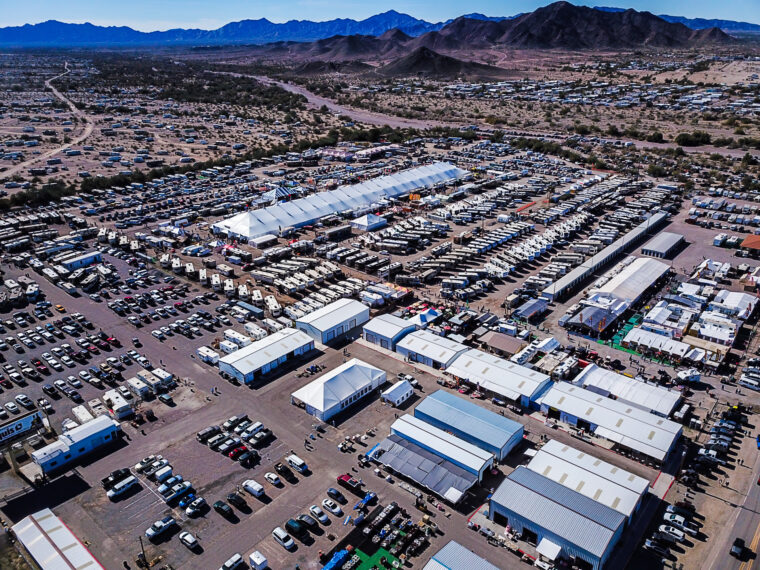Whether you’re camping in a tent, car, or RV, it’s easy to practice being a more sustainable camper—but what exactly does that mean?
More than 30 years ago, United Nations leaders described sustainability as “meeting the needs of the present without compromising the ability of future generations to meet their own needs.”
Campers across the globe continue putting into practice ways to help sustain our shared outdoor spaces. Here are six things we wish campers knew about sustainability.
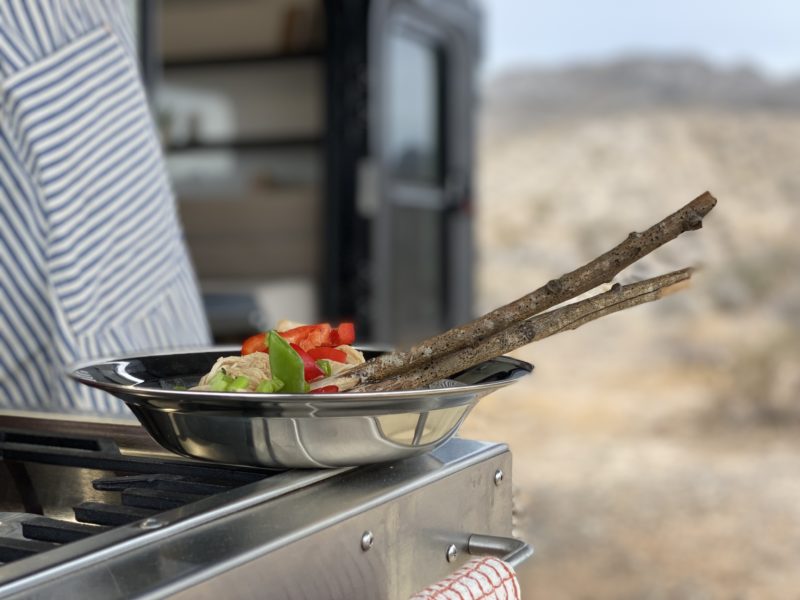
1. Small Changes Can Have Big Impacts
According to KOA’s 2021 North American Camping Report, there are more than 94.5 million camping households in North America.
If just one person from each of those camping households swapped out a single-use sandwich bag for a reusable silicone bag, that would keep 94.5 million plastic bags out of our landfills and oceans.
Consider adding the idea of reduce, reuse, and recycle to your camping mentality. Simply using reusable plates, forks, and water bottles can make a big impact over time. You can even add an element of fun to your efforts by doing things like whittling sticks to make camping chopsticks instead of using plastic utensils.
“Think about the things you do at home to approach sustainable living (turning off the lights when not in a room, insulating windows and doors, etc.) and apply those things to your camping experience,” says Andrew Leary, Leave No Trace’s senior manager of national outreach.
“If you’re anything like my family, you’ve spent some time exploring the internet for tips and tricks and do-it-yourself projects for your camper,” says Leary, “There are lots of great sustainability ‘hacks’ for your camper experience.”
2. Where You Camp Matters
National parks and state parks choose designated campgrounds based on environmental factors and safety. And so should you—especially when you’re dispersed camping.
“Surfaces like compacted dirt, gravel, and forest duff are ideal for supporting an RV without damaging the landscape,” says Katie Connelly, Leave No Trace state advocate for Montana. “Camping on vegetation, or on top of a wet meadow, are things to avoid.”
This Is How Dispersed Camping Areas Get Shut Down. We All Need to Do Better.
You should also know how close you are to water. It’s best to set up camp at least 200 feet from a water source to help protect that water and everything living in it.
“If you’re camped right on a creek, you’re likely going to do your dishes next to it, maybe your laundry, probably spit into it when you’re brushing your teeth,” says Connelly. “And if you’re using biodegradable soap, that’s great, but it can do a lot of damage while it’s taking its time to biodegrade in the water.”
Putting some distance between you and a water source allows the soil to filter out harmful elements before it reaches the water. This naturally occurring filtering process prevents overgrowth of algae that can damage entire fisheries.
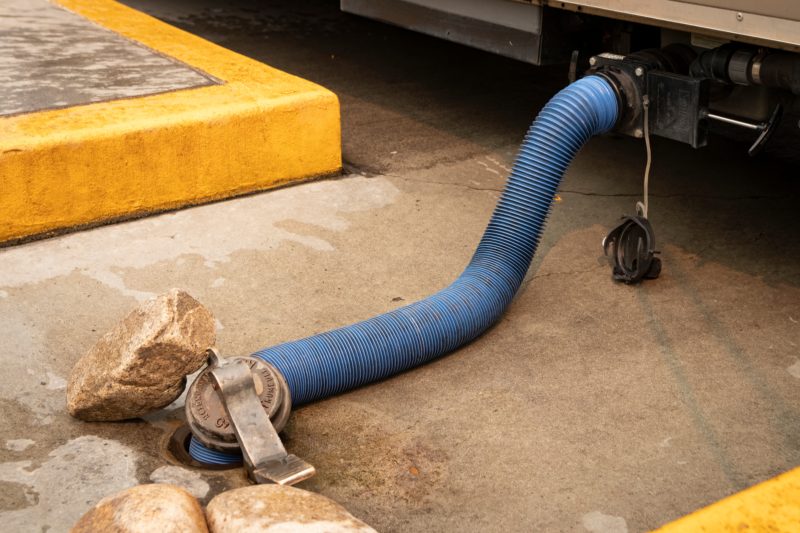
3. Dispose of Waste Properly
“If you intend on using an RV that has gray or black water tanks or composting toilets, know in advance if you will need a dump station or other disposal facility, and where those will be located,” says Brian Smith, Bureau of Land Management Montana/Dakotas lead for outdoor recreation.
By dumping responsibly, you’re helping healthy soils stay healthy.
Nature is Calling: Here’s How to Poop Properly in the Great Outdoors
4. Source Local Firewood for Campfires
Using local wood for your campfire helps prevent disease and bugs from entering new territory. Bugs—like bark beetles, which have affected tens of millions of acres of western forests—can easily hide in your firewood and cause destruction in their new ecosystem.
Best Practices on How to Build a Responsible Campfire
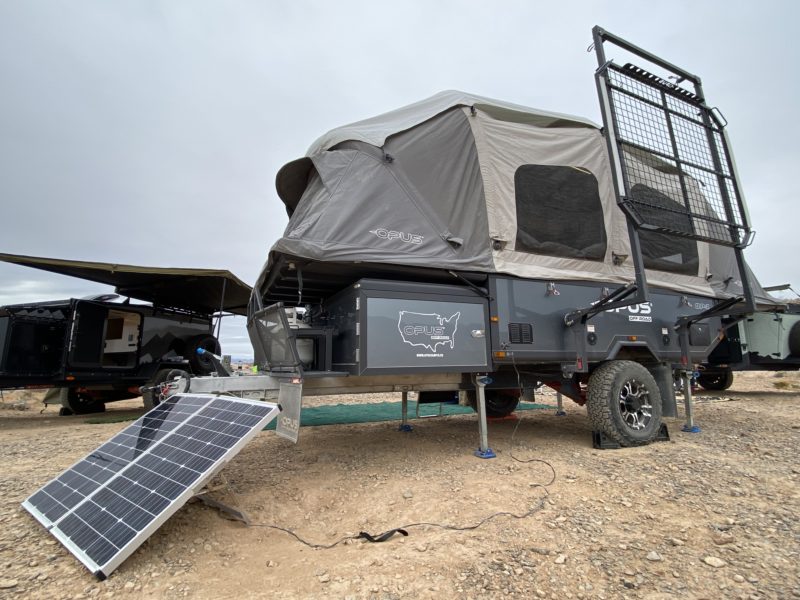
5. Add Eco-Friendly Elements to Your RV to Reduce Your Carbon Footprint
There are many ways to make your RV more eco-friendly. You can install solar panels or start small by converting to LED lights. Try recycling on the road, composting, and using eco-friendly cleaning products.
Spend time researching to see what sustainability practices work best for your budget and camping style.
Eco-Friendly Campgrounds to Book Your Next Green Stay
6. Pay Attention to How You Leave Your Campsite
Go beyond the “pack it in, pack it out” mentality to be a more sustainable camper. The next time you go camping, focus on leaving your campsite better than you found it.
“To be a good steward and a more sustainable visitor, take the photographs but leave the wildflowers, plants, little critters, cultural and historic artifacts,” says Smith. “This will allow others to enjoy them the way you did.”
Smith added that even a small improvement is still impactful. Years ago, Smith set a goal for himself and his family to always leave the site where they camped with at least one piece of trash that they’d found. Over several decades, that one small practice can make a difference.
“You don’t have to get it perfect from the get-go; there’s a learning curve, and even the most experienced RVers have room for improvement,” says Smith. “The important thing is that you’re trying, and learning, and challenging yourself to continue lessening your impact.”
Additional Camping Sustainability Resources
The Leave No Trace Center for Outdoor Ethics, a non-profit organization founded in 1994, provides proven, research-based solutions for the protection of the natural world.
How to Leave No Trace: Boondocking Edition
Tread Lightly, an initiative to protect the outdoors through promoting positive stewardship and ethics, outlines ways to minimize your impact when camping, including how to travel responsibly, educate yourself, avoid sensitive areas, do your part, and respect others.
